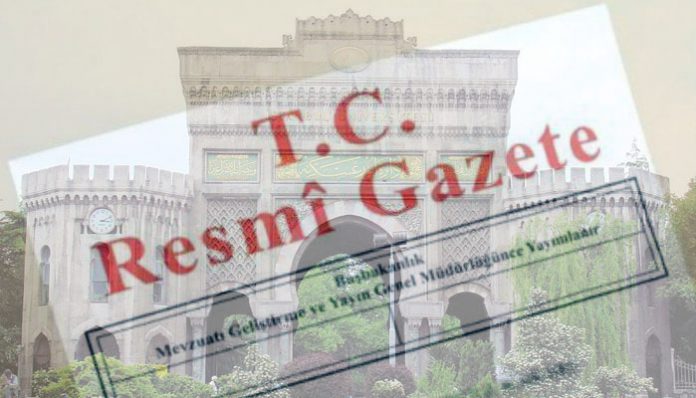Following the dismissal of 105 academics by means of a recent state of emergency decree, the number of academics fired by decree-laws issued by the ruling Justice and Development Party (AKP) government has reached 5,822, bianet reported on Monday.
According to the report a total of 1,258 administrative staff members have been dismissed by government decree, while 141 academics have been allowed to return their posts since Sept. 1, 2016.
The government has been ruling the country under a state of emergency since July 20, 2016.
The state of emergency decrees and their respective numbers were listed as follows:
Sept. 1, 2016, decree No. 672: 2,346 academics dismissed
Oct. 29, 2016, decree No. 675: 1,262 academics and five administrative staff dismissed
Nov. 22, 2016, decree No. 677: 242 academics, 942 administrative staff dismissed, 16 academics returned to job
Jan. 6, 2017, decree No. 679: 631 academics and 155 administrative staff dismissed, 42 academics returned to job
Feb. 7, 2017, decree No. 686: 330 academics dismissed
March 29, 2017, decree No. 688: 37 academics returned to job.
April 29, 2017, decree No.689: 484 academics dismissed, 18 academics returned to job.
July 14, 2017, decree No. 692: 302 academics and 54 administrative staff dismissed, 26 academics returned to job.
Aug. 25, 2017, decree No. 693: 120 academics and 52 administrative staff dismissed, 1 academic returned to job.
Dec. 24, 2017, decree No. 695: 105 academics and 50 administrative staff dismissed, 1 academic returned to job.
According to a BBC Turkish report in July, 23,427 academics have been affected by the emergency rule that was declared following a failed coup attempt in 2016.
The report said at least 23,427 academics either lost their jobs at universities when their contracts were terminated or were dismissed from their positions, or the universities where they worked were closed down by the government after Sept. 1, 2016.
Critics say the mass dismissal of academics and collective verdicts without specifying individual crimes violates the principle of the individuality of crime and punishment in law.
Emergency rule was declared for three months on July 20, 2016 and became effective with a government decree issued on July 23, 2016. With the first decree, No. 667, 15 universities were closed down on the grounds that they were linked to the faith-based Gülen movement, accused by the Turkish government of orchestrating the failed coup, a claim the movement denies.
There is no information about the number of administrative staff members working at these universities who were affected, but 2,808 academics were left unemployed and about 65,000 students had to seek new universities according to figures from Turkey’s Council of Higher Education (YÖK).
Another state decree in September targeted 15,000 research assistants for their alleged links to the Gülen movement. They were part of an Assistant Professor Training Program (ÖYP) that was launched in 2010 to meet the need for academics in Turkey.



